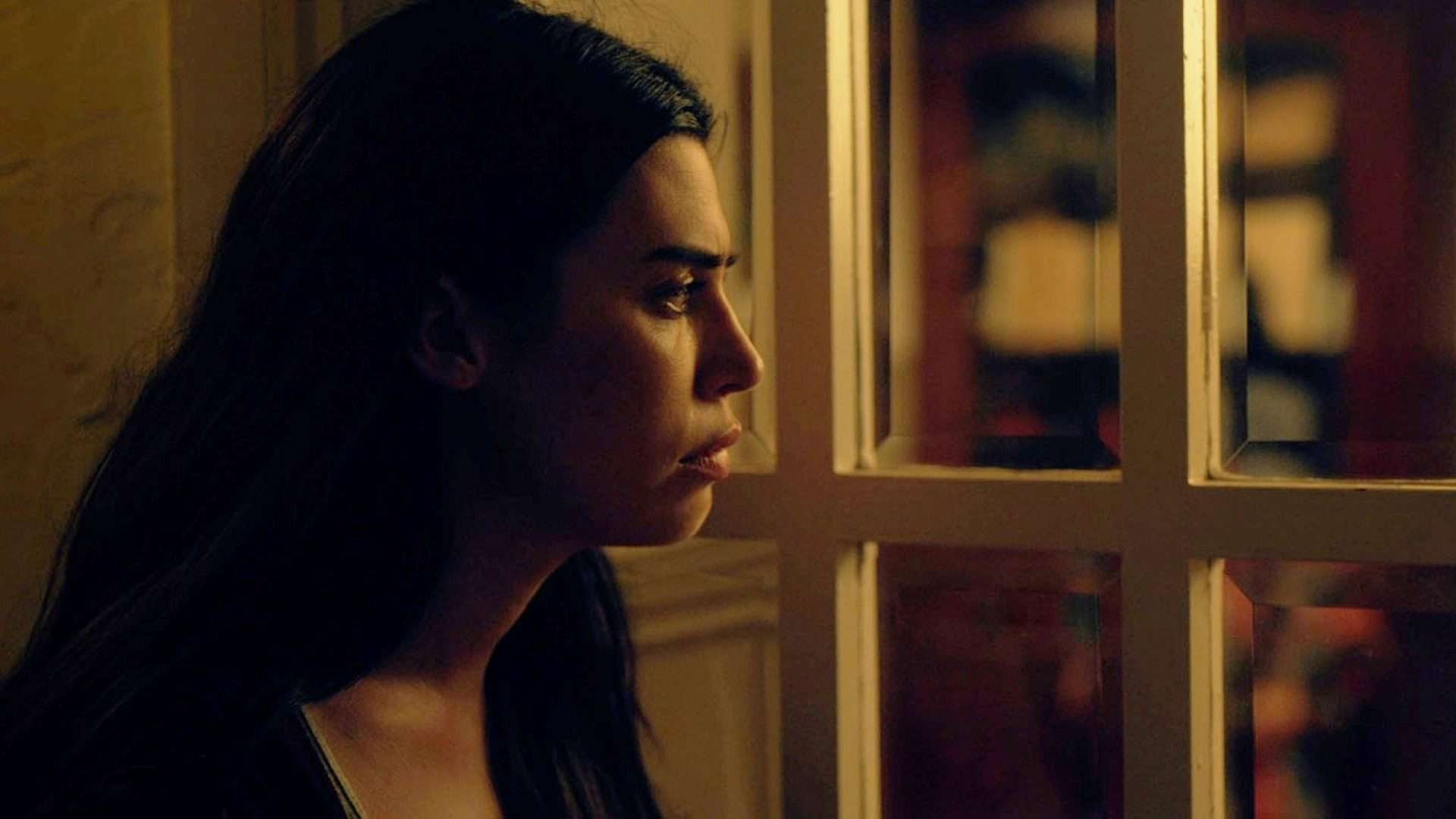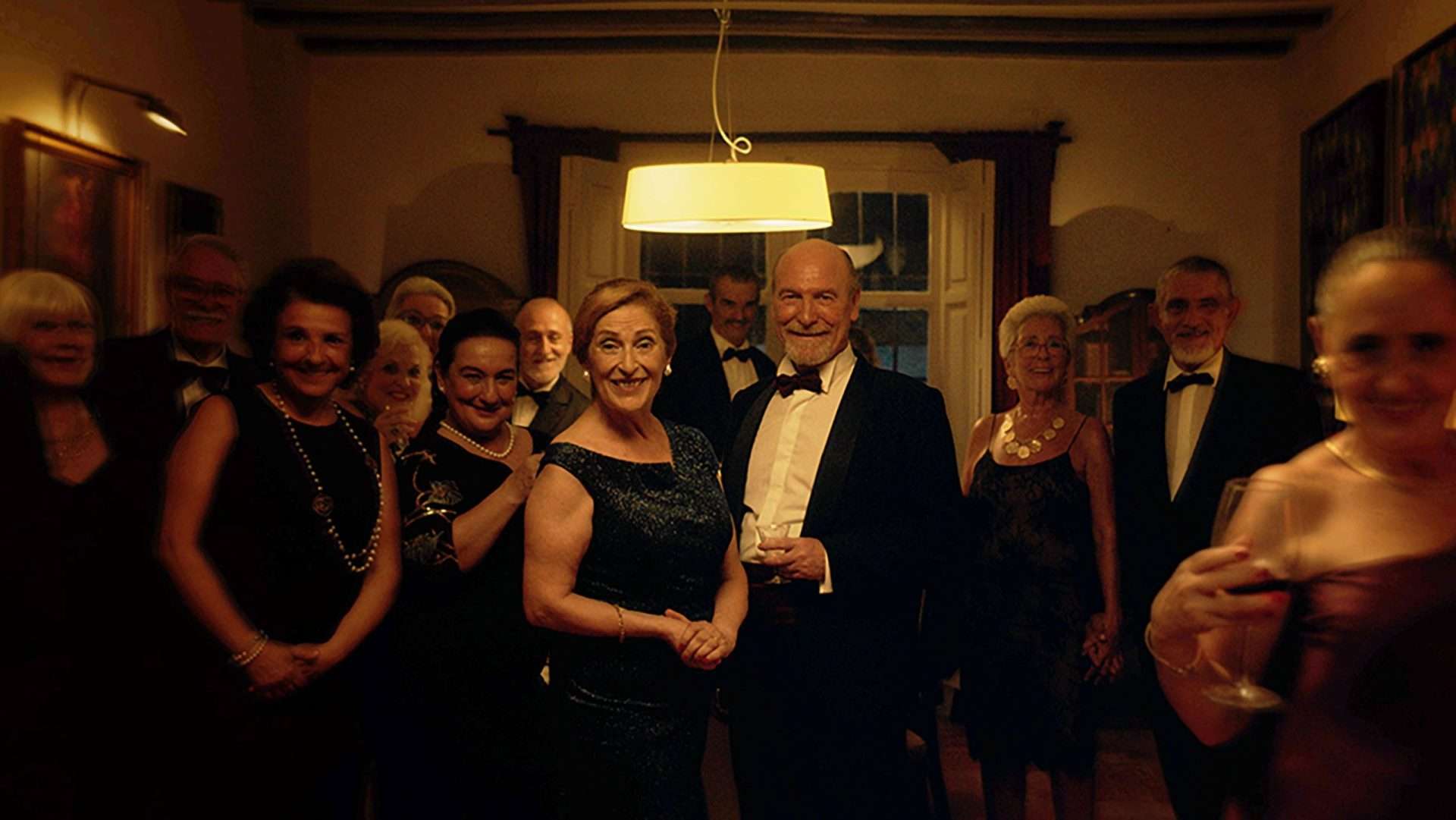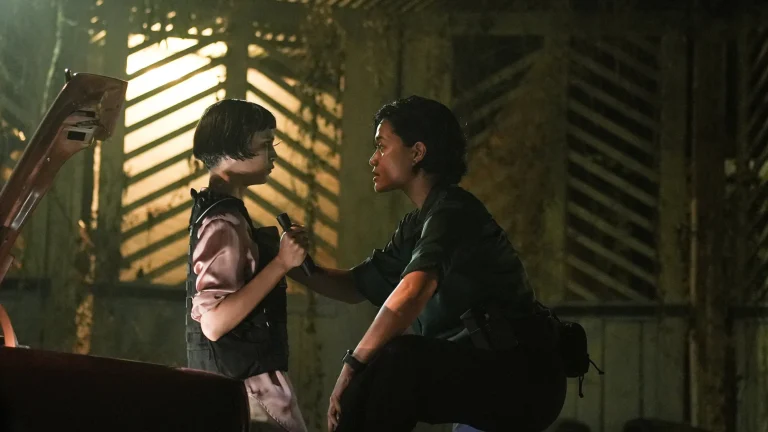Marisa Crespo and Moises Romera’s “You Are Not Me” (Original title: Tú no eres yo, 2024) is effective as a genre flick, if you can overlook the predictability and allow it some brownie points of creating a persuasive, unnerving sense of atmosphere. Yes, some moves are uninspired but there’s some fun to be had in watching an uptight family unravel, secrets tumbling to the fore, all brought together in a stew of fear and edgy discomfort.
What Romera and Crespo particularly succeed in building is a creeping, amplifying sense of unease, a dread that lingers beneath placid surfaces. The composure and niceties of families come under the scanner, revealing grotesque energies simmering beneath. Who can be trusted? There are all sorts of uncertain elements to be grappled with, realizations to be made peace with, confrontations demanding explanation.
The film hints at dramatic change. But weaves them in slow, careful gradations, dropping the scale of it on us in terrifying, bristling detail. Even though the twists may be telegraphed and you can spot them coming from a mile, the screenplay, written by the directors, lets the actors lean into a delicious, unpredictable, chilly projection. What’s also especially brilliant is how the film defuses the lines between the delirium of the protagonist and the real shape and tenor of events unfolding.
You Are Not Me (Tú no eres yo, 2024) Plot Summary & Movie Synopsis:
Along with her partner Gabi and their child, Aitana (Roser Tapias) heads back to her parents’ house to spend Christmas. It’s meant to be a surprise. But her parents seem terribly inconvenienced. There’s a new housekeeper, Nadia, who has become the centre of their adulation and attention. Except for her wheelchair using brother Saul, her family gives the strong impression that Aitana is not welcome.

You get a sense of the fray between her and her parents, on account of her severing ties because they had been unwilling to come to terms with her queerness. They reject her. That’s how they make her feel. She tries to pack her bags and leave several times. However, it’s at Nadia’s insistence that she stays and gives her family a second chance.
Is Aitana’s Paranoia Justified, or Is She Losing Her Grip on Reality?
How much of what Aitana is perceiving is a reflex to her own sense of paranoia? Her partner seems entirely fine and not so ruffled, unlike her. Gabi keeps asking her why she is acting up. Everything is fine. Isn’t she exaggerating? The contrast between Aitana and Gabi’s response to the situations is critical to establishing the destabilising effect the film provokes through various discombobulating scenes, where Aitana feels she’s being deliberately excluded and the new housekeeper gaining her position in the family.
Nadia is even given her clothes, her possessions. She’s being ushered into being the perfect daughter, a role Aitana flunked as her parents see it on account of her queerness and stepping away from their proscriptive wishes. Aitana fumes and seethes as she plots to bring to her family in clear terms how Nadia is taking them for a ride. She wants to prove to them that Nadia is lying and deceiving, that she cannot be trusted at all, and that all her claims are specious.
Is Aitana Unraveling, or Is She the Only One Seeing the Truth?
Saul has an epileptic seizure, and Aitana is again accused of having something to do with him, of pushing him and over-exerting him. She is already perturbed by his account of talking to their grandfather, who has been dead for five years. He alleges that he’d died by suicide. Suddenly, Aitana finds herself locked in at the turret, as the Christmas dinner is being laid out and guests start pouring in. Somehow, she extricates herself and lands downstairs in the gathering.

She keeps scouting for strong proofs that suggest Nadia is dealing Saul’s morphine and that her identity as a refugee is questionable. But her parents won’t hear of it. As a rich coterie of guests start walking in, she can’t help thinking she’s never seen them before. Who are all these people? They proclaim a glib liking for outsiders, refugees, and people of other races and nationalities. Aitana sees right through the ruse, their insincere conversation.
The night witnesses a scuffle between Aitana and Nadia, when her parents refuse to confront Aitana’s evidence and Nadia suggests to her that she should back off. It leads to several minutes of gleeful entertainment for the guests, who cackle and cheer at the scene. Gabi retreats upstairs to sleep. But the night still has much to offer and disconcerting Aitana.
You Are Not Me (Tú no eres yo, 2024) Movie Ending Explained:
Is Nadia alive?
When Aitana gets up from booze-addled sleep and goes downstairs, she stumbles across Nadia and senses her trying to steal. She immediately tries to haul her to her parents and everyone. But when she overhears that someone is plotting to do Nadia harm, she lets her stay in the closet.
Aitana stumbles out into the open, where she ends up on the grounds and witnesses a horrifying scene of satanic cult practice that her parents and the guests are engaged in. They have got her baby. They give her the choice of giving up either Nadia or the child so that they can sacrifice and make Saul better. Distraught, she cedes Nadia, who’s instantly pulled out. Aitana sees no other alternative. There’s no help she has at the moment.
Everyone strips and gets into a circle. Nadia is hung upside down, and people start chanting the name of the devil, invoking him to accept the blood sacrifice. All Aitana wishes for is that it’s a bad dream. The next thing you see is the morning after. She sees not a trace of the night before. She scans for clues.
There’s happiness in the house. Gabi tells her that the family is saying that Nadia made off in the middle of the night, stealing as much as she could. It all comes together for Aitana when she sees Saul being able to make some strides. The sacrifice, hence, did take place. None of it was imagined. The grotesque reality hits her with force, and the film closes with her blanched realization.



![Tristana [1970]: Shifting Power Dynamics in Human Relationship](https://79468c92.delivery.rocketcdn.me/wp-content/uploads/2018/08/tristana-and-don-lope-outside-church_630x330_4cda94b9-984d-e311-bba7-d4ae527c3b65_lg.jpg)




